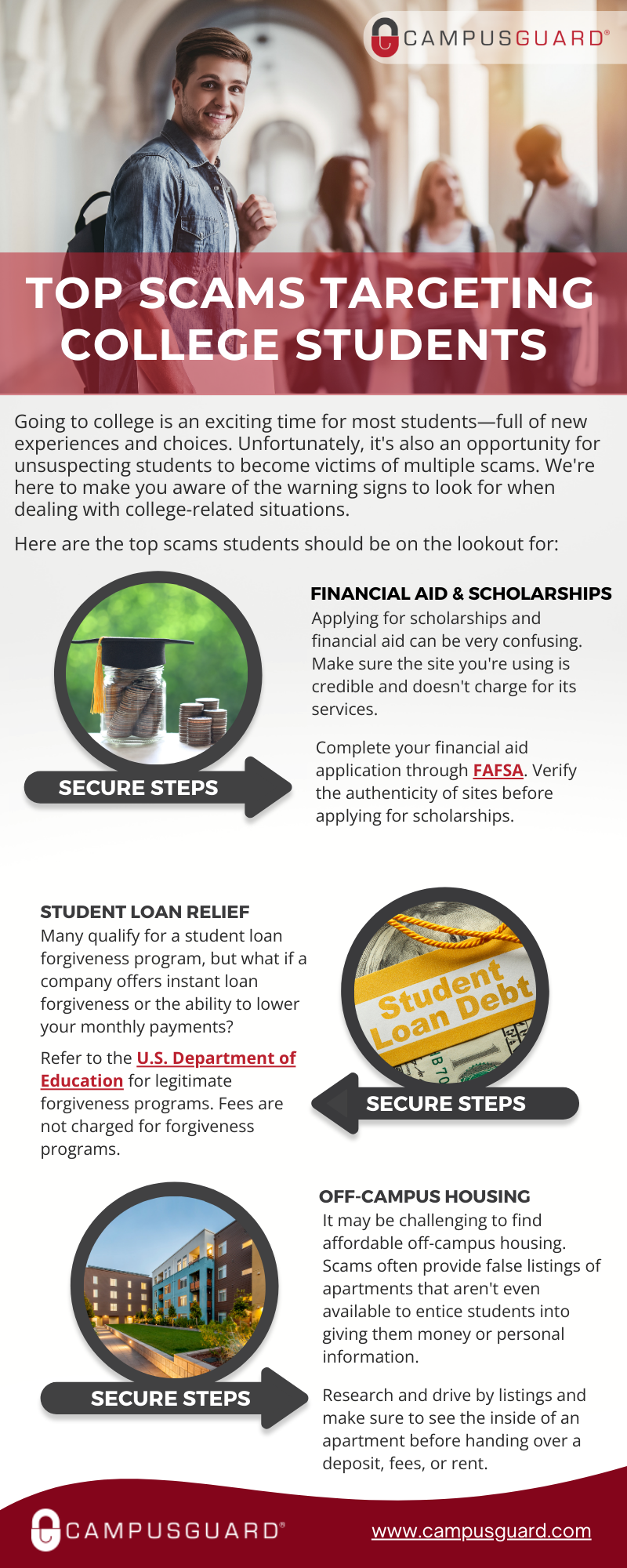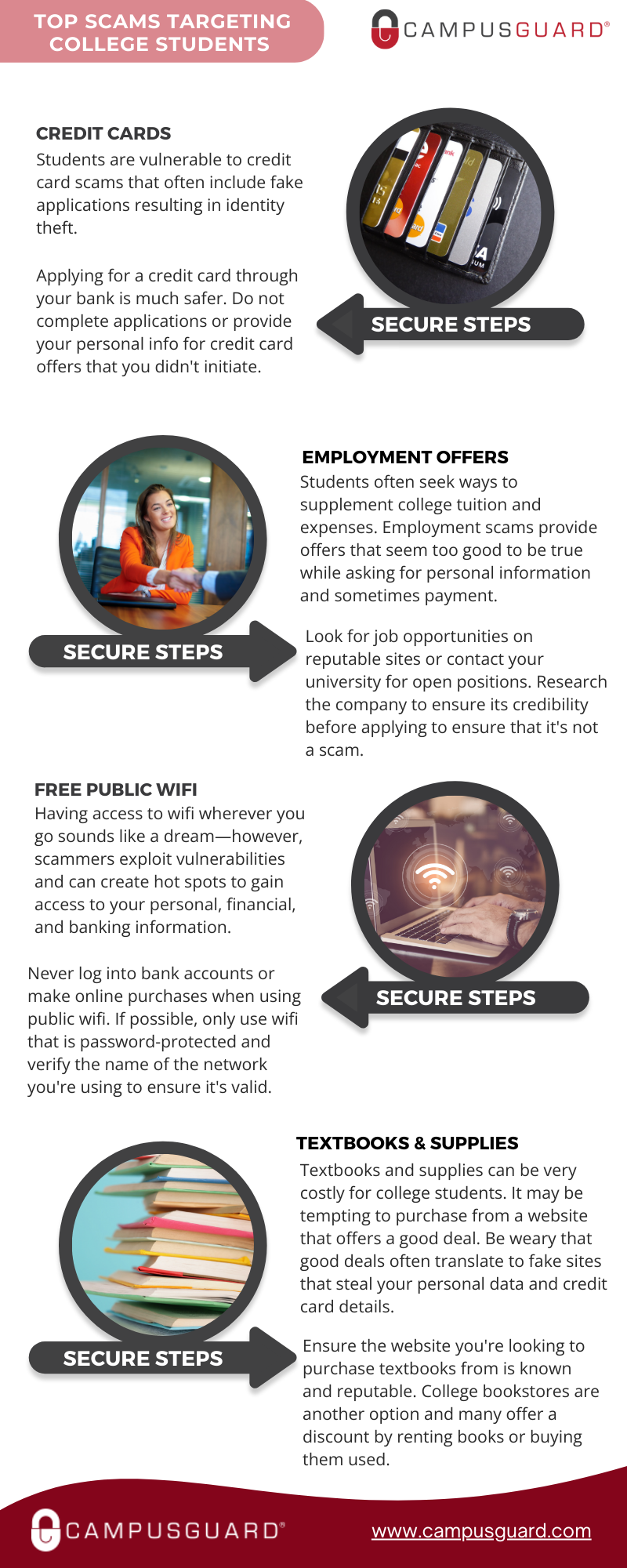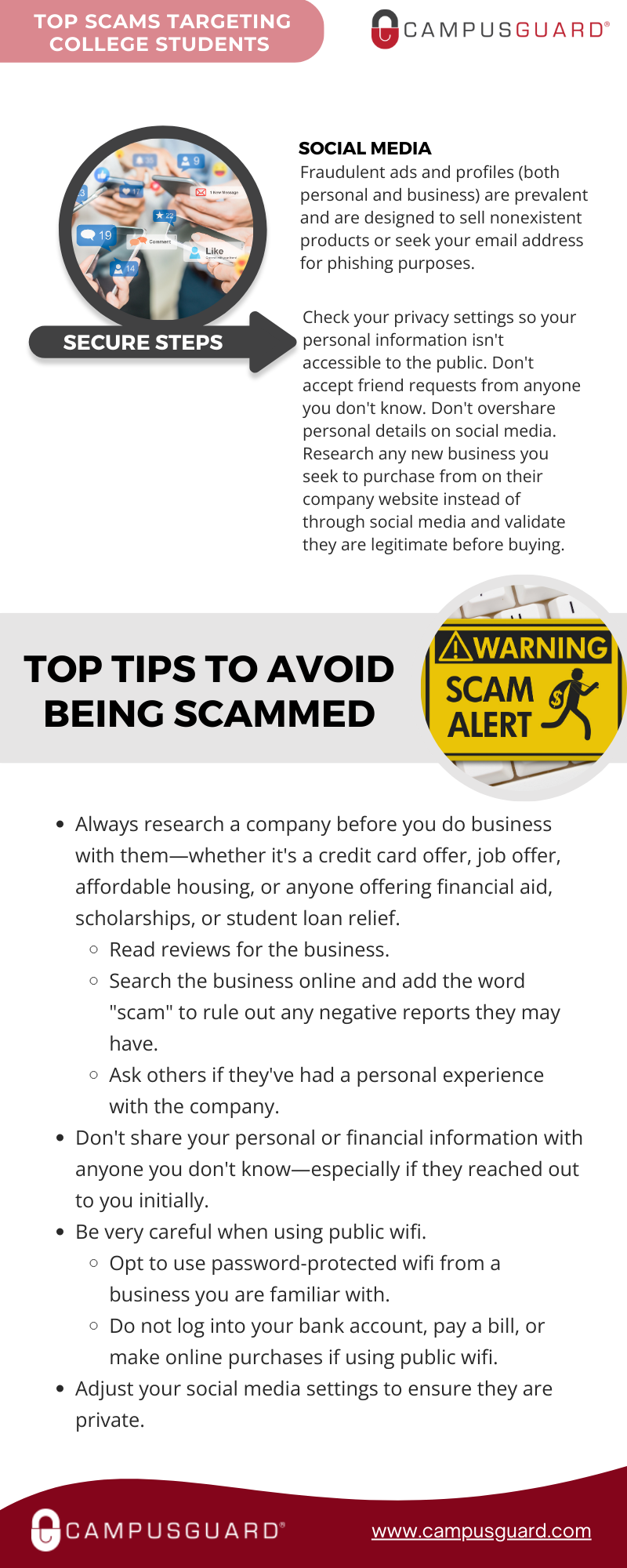
Going to college is an exciting time for most students—full of new experiences and choices. Unfortunately, it’s also an opportunity for unsuspecting students to become victims of multiple scams. We’re here to make you aware of the warning signs to look for when dealing with college-related situations.
Here are the top scams students should be on the lookout for:
Financial Aid & Scholarships
Applying for scholarships and financial aid can be very confusing. Make sure the site you’re using is credible and doesn’t charge for its services.
Complete your financial aid application through FAFSA. Verify the authenticity of sites before applying for scholarships.
Student Loan Relief
Many qualify for a student loan forgiveness program, but what if a company offers instant loan forgiveness or the ability to lower your monthly payments?
Refer to the U.S. Department of Education for legitimate forgiveness programs. Fees are not charged for forgiveness programs.
Off-Campus Housing
It may be challenging to find affordable off-campus housing. Scams often provide false listings of apartments that aren’t even available to entice students into giving them money or personal information.
Research and drive by listings and make sure to see the inside of an apartment before handing over a deposit, fees, or rent.
Credit Cards
Students are vulnerable to credit card scams that often include fake applications resulting in identity theft.
Applying for a credit card through your bank is much safer. Do not complete applications or provide your personal info for credit card offers that you didn’t initiate.
Employment Offers
Students often seek ways to supplement college tuition and expenses. Employment scams provide offers that seem too good to be true while asking for personal information and sometimes payment.
Look for job opportunities on reputable sites or contact your university for open positions. Research the company to ensure its credibility before applying to ensure that it’s not a scam.
Free Public WiFi
Having access to wifi wherever you go sounds like a dream—however, scammers exploit vulnerabilities and can create hot spots to gain access to your personal, financial, and banking information.
Never log into bank accounts or make online purchases when using public wifi. If possible, only use wifi that is password-protected and verify the name of the network you’re using to ensure it’s valid.
Textbooks & Supplies
Textbooks and supplies can be very costly for college students. It may be tempting to purchase from a website that offers a good deal. Be aware that good deals often translate to fake sites that steal your personal data and credit card details.
Ensure the website you’re looking to purchase textbooks from is known and reputable. College bookstores are another option and many offer a discount by renting books or buying them used.
Social Media
Fraudulent ads and profiles (both personal and business) are prevalent and are designed to sell nonexistent products or seek your email address for phishing purposes.
Check your privacy settings so your personal information isn’t accessible to the public. Don’t accept friend requests from anyone you don’t know. Don’t overshare personal details on social media. Research any new business you seek to purchase from on their company website instead of through social media and validate they are legitimate before buying.
Top Tips to Avoid Being Scammed
- Always research a company before you do business with them—whether it’s a credit card offer, job offer, affordable housing, or anyone offering financial aid, scholarships, or student loan relief.
- Read reviews for the business.
- Search the business online and add the word “scam” to rule out any negative reports they may have.
- Ask others if they’ve had a personal experience with the company.
- Don’t share your personal or financial information with anyone you don’t know—especially if they reached out to you initially.
- Be very careful when using public wifi.
- Opt to use password-protected wifi from a business you are familiar with.
- Do not log into your bank account, pay a bill, or make online purchases if using public wifi.
- Adjust your social media settings to ensure they are private.




